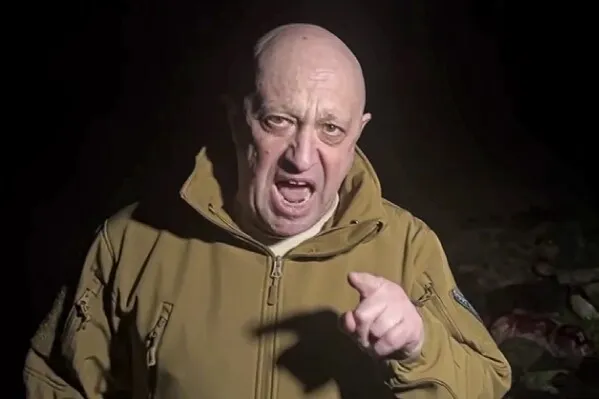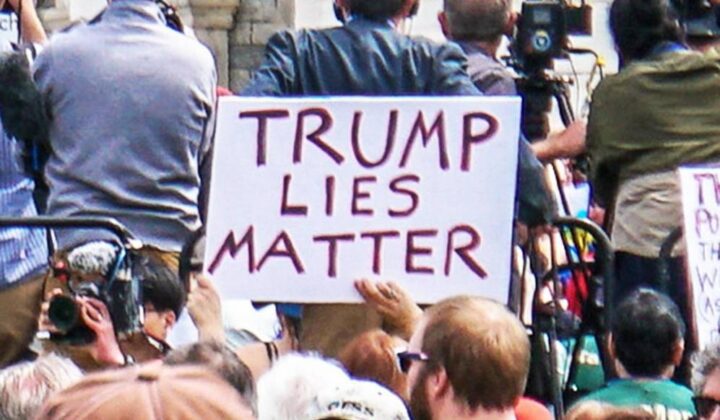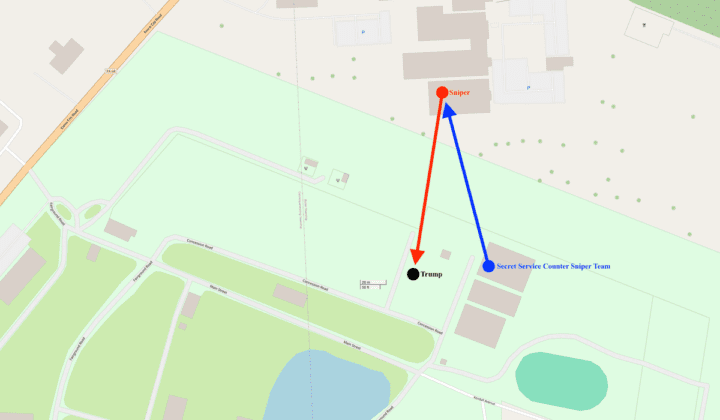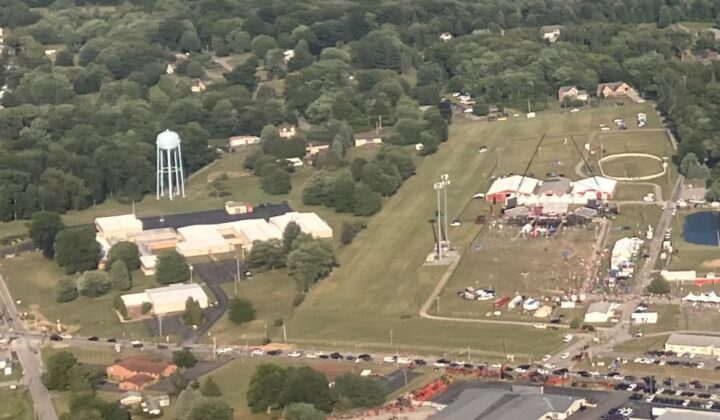Almost three weeks ago, Russia faced one of its most startling domestic crises in decades as Wagner Group forces under warlord Yevgeny Prigozhin stormed through Russia, capturing two cities and advancing within about 120 miles of Moscow. Yet just as suddenly and mysteriously as the mutiny began, it ended.
As the events were still unfolding, RDI’s Garry Kasparov and Uriel Epshtein hosted a podcast covering the emerging news. Earlier this week, I spoke with Kasparov, now with the benefit of two weeks’ hindsight, to discuss the mutiny and what it means for the future of Putin’s regime and the war in Ukraine.
The following conversation has been edited for clarity and concision.
LEWIS: As is often the case with Russia, it seems that even the basic facts of this situation are difficult to discern. So what caused Wagner’s rebellion, and what was its key goal?
KASPAROV: Very few people really have a knowledge of what was behind this so-called rebellion. I would even question the name “rebellion” or “coup.” Maybe “mutiny” is a better word, because a rebellion or a coup would imply a clear goal of removing the government. We don’t know whether that was a goal. We don’t know if Prigozhin had any real intention of taking Moscow. So we can quote Winston Churchill on Russia: “It is a riddle wrapped in a mystery inside an enigma.”
It is only my educated guess, but I think the real driving force of this mutiny was the growing dissatisfaction with this war among serious stakeholders in Putin’s mafia regime. At the end of the day, it’s about money. The war caused a major disruption to many business arrangements. Hundreds of billions of dollars, if not trillions, are at stake. The war has been going south for Russia, so I don’t think it’s surprising that there was an internal quarrel.
Let’s not forget that Prigozhin is a part of the inner circle. He’s not just a warlord. Prigozhin is a part of a small, very connected group from St. Petersburg operating as a mafia. And Prigozhin is not a small player there. He’s definitely not an ace, but he’s at least a jack. Maybe higher.
LEWIS: So if Prigozhin represents a discontent group in Putin’s inner circle, what did this mutiny tell us about them and their intentions?
KASPAROV: We saw that there are very powerful voices inside Putin’s mafia organization, which is mistakenly called “the Russian State,” that are in favor of ending the war.
Prigozhin’s rhetoric the week before his march to Moscow was not about “war to the last soldier.” It was exactly the opposite. Prigozhin was essentially saying: “the whole idea was wrong. Nobody attacked us. The Russian rationale for starting this major invasion was a false one. It’s going nowhere. And instead of dying here, we should turn our weapons to restore justice in Russia.” That’s not the language of somebody who wanted to just continue fighting to the last bullet and last soldier.
Prigozhin was the tip of the spearhead. The mutiny tells us that there are very powerful forces dissenting behind Putin’s back, and it’s not just some army generals that are not ready to die with Putin. I think a lot of people around Putin who used to be great beneficiaries of his mafia rule resent the war because they have hundreds of billions of dollars at risk. Business is getting more and more difficult. The price they’re paying for the war—Putin’s war—looks excessive.
It’s remarkable that Prigozhin is still in Russia. As the events were unfolding and even afterward, there was big talk that “Putin would never forgive him” or “Prigozhin would not be safe even in Belarus or in the Central Africa Republic.” I don’t know about Belarus, but he appears safe in Russia now. It doesn’t seem that Putin is about to do anything against him. Maybe because he cannot.
LEWIS: One of the most remarkable aspects of this mutiny was the lightning pace with which Wagner forces advanced toward Moscow. While Wagner troops shot down six Russian helicopters and a plane, demonstrating they faced some resistance, we also saw videos of civilians cheering on Wagner’s advance. So why then did Prigozhin stop before arriving in Moscow, and if the Wagner forces had continued could they have really taken the capital?
KASPAROV: What I suspect happened when Prigozhin’s troops reached the Oka River, the last obstacle on their way to Moscow, they were offered some kind of a deal because Moscow was defenseless. The whole story about “Moscow could be defended” and “there was overwhelming force waiting for Prigozhin” is nonsense. Prigozhin had 5,000 seasoned warriors who survived hell in Ukraine and in the Bakhmut area. These are killing machines with no fear of death. Who could have stopped them? The National Guard? They would have just ran away.
So there’s no doubt that if they had decided to continue, they would be in Moscow. There would have been some fighting, but it would have been over quickly. But then Prigozhin would have faced the real question: what’s next? Taking over Moscow would require that they had a plan to install a new government and it doesn’t seem they had it. Prigozhin had no political organization, so either you consider the mutiny completely stupid, or it was always intended to push Putin into the corner and get some concessions out of him.
The most important lesson of this “mutiny” is that nobody wanted to die for Putin. That’s why I disagree with the argument that if America pushes Putin too hard, then he will do something crazy. Well, Prigozhin pushed him too hard and he ran away. This man who allegedly could push the nuclear button and kill people by the millions couldn’t defend the capital from 5,000 people. The Putin regime showed its true colors. We saw its weakness and divisiveness.
LEWIS: You’ve brought up probably the most common argument against providing more weapons to Ukraine––that it could escalate the situation and lead to a nuclear conflict. Priogzhin’s mutiny certainly renewed those fears for many. What do you have to say to people worried about this playing out?
KASPAROV: As long as Russia is run by a dictator who is probably mentally unstable there is a threat. (I say “probably mentally unstable” because I have no idea whether he is or not, but let’s assume the worst). And this threat is real exactly because for so many years nobody wanted to accept the fact that Putin was, still is, and will be the greatest existential threat to global stability.
There is a simple rule: the longer you wait to oppose a dictator, the greater the price you pay. Americans probably could have helped Ukraine win the war earlier by providing planes and ATCAMS. Now to win the war, Ukraine needs cluster bombs and other munitions.
The longer the war goes on, the greater the escalation. So the chances of Russia’s collapse keep growing because there will be more and more blood. More people will die. There will be more frustration. And there will be growing discontent domestically, particularly in certain regions. Not just Tatarstan or Bashkortostan, but maybe Ingushetia, maybe North Caucus, and maybe some of the far east regions or Siberian regions. They are asking: “why should we pay for this damn war? It’s happening a thousand miles away from us.”
War creates more and more instability. That’s why it’s in everyone’s interest to end this war as soon as possible. And that’s why the whole idea of, “Let’s give Ukraine weapons to stay in the battle,” instead of to actually win, is absolute nonsense.
LEWIS: As you’ve pointed out, military aid has helped Ukraine hold its own in the war, but it hasn’t been enough for Ukraine to decisively liberate itself from occupation. What does that mean about American aid and the future of the war?
KASPAROV: Indecisiveness in providing more advanced weapons gave the Russian troops months to build the most sophisticated defense line the world has seen since World War I. It’s about a thousand kilometers long and up to eight kilometers deep with three different layers of fortifications. It’s a line that cannot be easily broken through and the Ukrainians have to do it without the main component of NATO and American strategy: air power.
All American victories in recent years have followed an air campaign that turned most defense lines—not as strong as this one— into rubble. Ukrainians have to go through these defense lines with essentially no air power at all. And that’s definitely another message to Putin. As long as America shows hesitations and as long as President Biden and his team cannot say clearly, “Ukraine must win” instead of the more ambiguous, “We stand with Ukraine as long as it takes,” that helps Putin to keep his coalition together.
There’s no question that even those Russians who are dreaming about victory understand that their only chance is greater Western fatigue. That’s why the Russian troops now, with some minor exceptions, are focused on strategic defense.
LEWIS: Prigozhin is a war criminal, but his mutiny still offered some hope in the sense that it showed that Putin’s regime is vulnerable. What would it take for Russia to fundamentally change?
KASPAROV: Nothing short of Ukrainian total victory––the Ukrainian flag raised in Sevastopol, Crimea and the collapse of the regime––can offer us a chance to move Russia into the camp of the Free World. I’m not saying it’s guaranteed. I think it’s a chance, and maybe it’s a less than 50-50 chance. But what I know for sure is that every day of this war reduces our chances to make something less dangerous out of the current Russian Federation.





